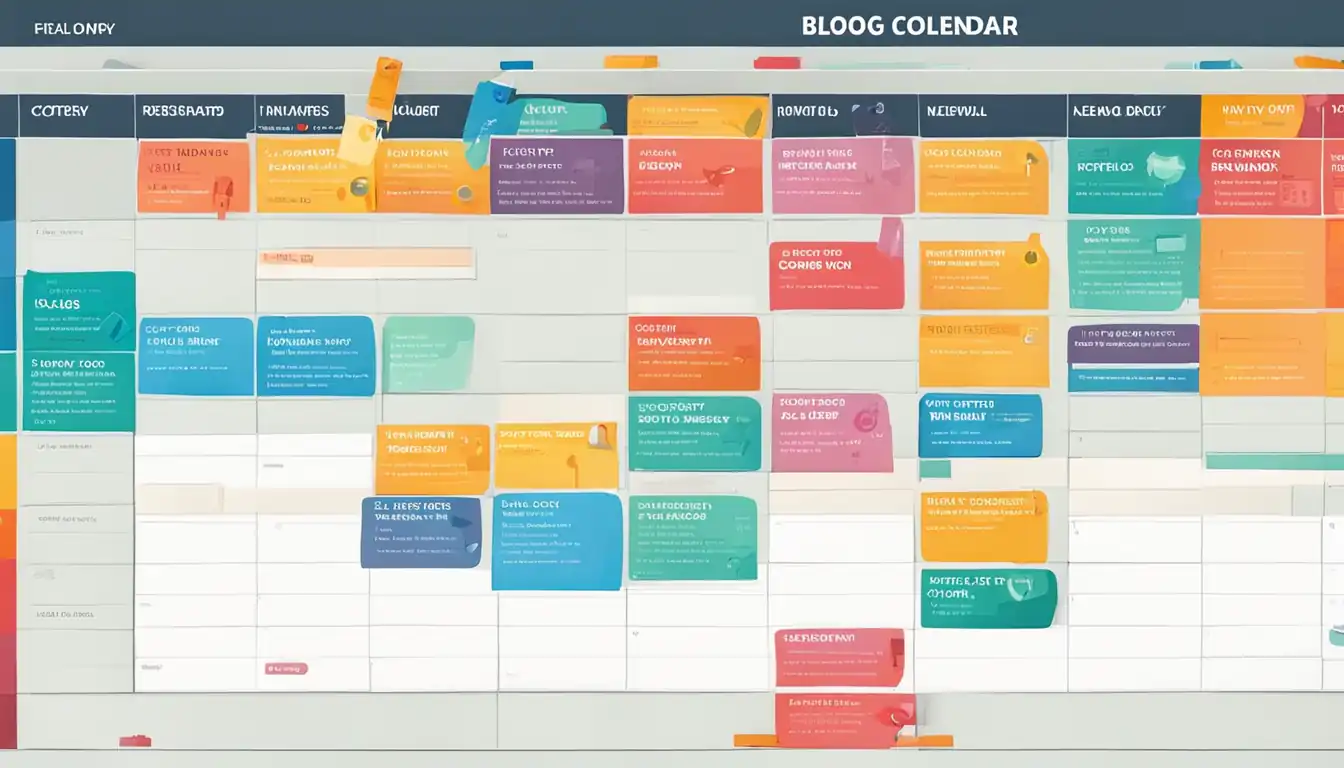Crafting an Effective SEO Content Calendar

Crafting an effective SEO content calendar is like putting together a puzzle - each piece fitting perfectly to create a cohesive and successful digital strategy. In this post, we'll dive into the basics of SEO content calendars, explore key components for success, provide a step-by-step guide to creating your own calendar, discuss best practices for maintenance, and highlight common pitfalls to avoid. Let's get started on optimizing your content strategy!
Understanding the Basics of SEO Content Calendars
What is an SEO Content Calendar
An SEO content calendar is a schedule that outlines the content creation and publication plan for a website or online platform. It helps to organize and strategize the creation of content that is optimized for search engines, ensuring that it aligns with the overall digital marketing goals of the business.
Why You Need One for Your Digital Strategy
Having an SEO content calendar is crucial for any digital strategy as it provides structure and direction for your content creation efforts. By planning out your content in advance, you can ensure that you are consistently publishing high-quality, relevant content that resonates with your target audience and improves your search engine rankings. Additionally, an SEO content calendar helps to maintain consistency in your messaging and branding across all platforms, leading to a more cohesive online presence.
Key Components of a Successful SEO Content Calendar
Crafting an effective SEO content calendar is essential for any business looking to improve their online visibility and drive organic traffic to their website. A well-planned content calendar can help you stay organized, maintain consistency in your content production, and align your efforts with your overall SEO strategy.
Essential Elements to Include
When creating an SEO content calendar, there are several key components that you should include to ensure its effectiveness:
Keyword Research: Before you start planning your content, conduct thorough keyword research to identify relevant keywords that your target audience is searching for. Incorporate these keywords strategically into your content calendar to optimize for search engines.
Content Topics: Outline the topics or themes that you want to cover in your content calendar. Make sure they align with your business goals, target audience interests, and keyword research findings.
Publishing Schedule: Determine how often you will be publishing new content and create a schedule that outlines specific dates for each piece of content.
Content Formats: Consider incorporating a variety of content formats such as blog posts, videos, infographics, and podcasts into your calendar to cater to different audience preferences.
Promotion Plan: Include a plan for promoting each piece of content across various channels such as social media, email newsletters, and influencer partnerships.
Structuring Your Calendar for Maximum Impact
To maximize the impact of your SEO content calendar, consider structuring it in the following way:
Monthly Overview: Start by creating a high-level overview of the entire month's content plan. This will help you see the big picture and ensure that all pieces of content are aligned with your overarching goals.
Weekly Breakdown: Break down each week into specific themes or topics that you will be focusing on. This will help you maintain consistency in your messaging and keep your audience engaged.
Daily Tasks: Assign specific tasks for each day related to content creation, optimization, promotion, and analysis. This level of detail will help keep everyone on track and accountable for their responsibilities.
Performance Tracking: Incorporate metrics tracking into your calendar to monitor the performance of each piece of content over time. This data will help you identify what is working well and where there is room for improvement.
By including these essential elements and structuring your SEO content calendar effectively, you can streamline your content production process, improve your search engine rankings, and ultimately drive more traffic to your website.
Step-by-Step Guide to Creating Your SEO Content Calendar
Gathering the Right Tools and Resources
To start crafting an effective SEO content calendar, it is crucial to gather the right tools and resources. These can include:
- Keyword research tools: Utilize tools like SEMrush or Ahrefs to identify relevant keywords for your content.
- Content management system (CMS): Choose a CMS that allows you to easily schedule and organize your content.
- Analytics tools: Use tools like Google Analytics to track the performance of your content and make data-driven decisions.
Having these tools in place will streamline the process of creating and managing your SEO content calendar.
Mapping Out Your Content Strategy
Before diving into creating your SEO content calendar, it is essential to map out your content strategy. This involves:
"Understanding your target audience and their needs is key to creating valuable and engaging content."
- Identifying target keywords: Determine which keywords are relevant to your business and align with your target audience's search intent.
- Setting goals: Establish clear objectives for your content, whether it be increasing website traffic, generating leads, or improving brand awareness.
- Creating a content calendar template: Develop a template that outlines key details such as publishing dates, topics, keywords, and assigned team members.
By mapping out your content strategy beforehand, you can ensure that your SEO content calendar aligns with your overall marketing goals.
Best Practices for Maintaining Your SEO Content Calendar

Regular Updates and Reviews
Consistency is key when it comes to maintaining an effective SEO content calendar. Make sure to schedule regular updates and reviews of your calendar to ensure that it aligns with your overall SEO strategy. This will help you stay on track and make necessary adjustments as needed.
Integrating Analytics and Feedback
Incorporating analytics data and feedback into your SEO content calendar is essential for optimizing your content strategy. By analyzing metrics such as traffic, engagement, and conversions, you can identify what is working well and what needs improvement. Use this information to inform future content creation and scheduling decisions.
"Regularly reviewing and updating your SEO content calendar will help you stay on track with your strategy."
Common Pitfalls to Avoid in SEO Content Planning

Overlooking Audience Engagement
When crafting an SEO content calendar, it is crucial to prioritize audience engagement. Focusing solely on keywords and search engine rankings can lead to content that fails to resonate with your target audience. To avoid this pitfall, take the time to understand your audience's needs, preferences, and pain points. Tailor your content to address these aspects and create value for your readers. By prioritizing audience engagement, you can build a loyal following and improve the overall performance of your SEO content strategy.
Neglecting Search Engine Updates
Another common pitfall in SEO content planning is neglecting search engine updates. Search engines frequently update their algorithms, which can impact the ranking of your content. It is essential to stay informed about these updates and adjust your content strategy accordingly. Keep abreast of industry news, follow reputable sources for SEO updates, and be prepared to make changes to your content calendar as needed. By staying proactive and adaptable, you can ensure that your SEO content remains relevant and competitive in the ever-evolving digital landscape.
Conclusion
In conclusion, by implementing an SEO content calendar that is well-structured and regularly maintained, you can boost your digital presence and drive more traffic to your website. Remember to engage with your audience, stay updated on search engine algorithms, and continuously analyze feedback to ensure your content remains relevant and impactful. With these tips in mind, you're well on your way to crafting an effective SEO content calendar that will elevate your online visibility. Happy optimizing!